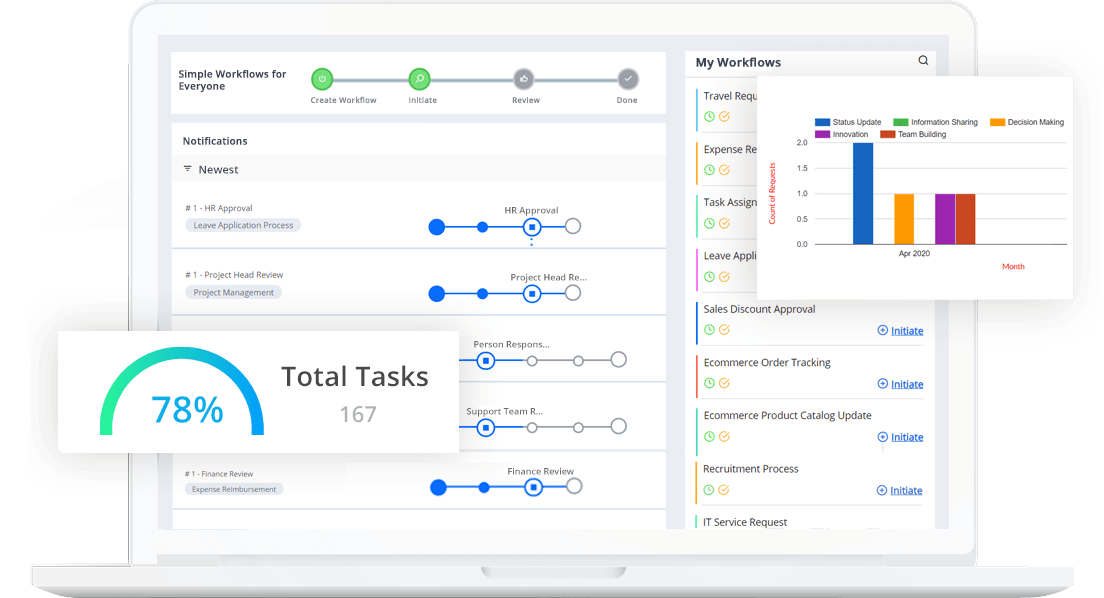
Managing finances is one of the biggest challenges for small businesses. Every dollar counts, and inefficiencies in financial operations can lead to wasted resources, delayed payments, and lost profits. The accounts payable process is a crucial part of a company’s financial workflow, but many small businesses still rely on manual methods—resulting in errors, missed deadlines, and high processing costs.
One small business, a growing retail company, faced these exact challenges. Their accounts payable department struggled with invoice approvals, data entry errors, and late payments. By implementing one of the best workflow management tools, they were able to streamline their processes, eliminate inefficiencies, and save thousands of dollars in operational costs.
In this blog, we’ll explore how this business transformed its accounts payable process through automation, the benefits it experienced, and how other small businesses can achieve similar results.
Inefficient Accounts Payable Process
Before automation, the retail company handled its accounts payable process manually. Invoices were received via email, scanned copies, and even paper receipts. Employees had to enter invoice details into spreadsheets, match invoices to purchase orders, and manually route them for approval.
This outdated process led to several challenges:
Delays in Approvals: Invoices often sat in an inbox for days before being processed.
High Processing Costs: Employees spent hours on repetitive data entry.
Payment Errors: Misplaced invoices and incorrect data led to overpayments and late fees.
Lack of Visibility: No real-time tracking of pending invoices.
The company realized that these inefficiencies were not sustainable. They needed a solution that could reduce manual tasks, improve accuracy, and cut costs.
The Solution: Automating Accounts Payable with Workflow Management Tools
The company decided to invest in one of the best workflow management tools to automate its accounts payable process. The solution provided:
- Automated Invoice Capture – The system automatically extracted invoice data, eliminating manual entry.
- Electronic Approval Workflow – Invoices were routed to the right person instantly, reducing approval delays.
- Integration with Accounting Software – Payments were processed directly without double data entry.
- Real-Time Tracking – Managers could monitor invoice status at any time.
With these automation features, the company saw an immediate impact on efficiency and cost savings.
How Automation Helped Save Thousands of Dollars
By implementing a workflow automation system, the small business reduced its accounts payable costs in several ways:
1. Faster Processing Reduced Labor Costs
Previously, employees spent 20+ hours per week handling invoices. Automation cut this time by 70%, allowing staff to focus on more strategic work rather than data entry. The reduction in labor costs alone saved the company over $15,000 annually.
2. Eliminated Late Payment Fees
Missed payments were costing the company an average of $2,500 per year in late fees. Automation ensured timely approvals and payments, eliminating these unnecessary expenses.
3. Reduced Errors and Overpayments
Incorrect payments due to manual entry mistakes resulted in overpayments of nearly $5,000 annually. Automated data capture ensured accurate invoice matching, reducing errors and saving money.
4. Improved Vendor Relationships
Delays in payments strained relationships with suppliers. By making payments on time, the company secured better terms and discounts, leading to additional cost savings of about $3,000 per year.
In total, the business saved over $25,000 annually just by automating its accounts payable process.
Why Small Businesses Should Automate Accounts Payable
If your business is still relying on manual processes, now is the time to consider automation. Here’s why:
🔹 Cost Savings – Automation eliminates inefficiencies that lead to high operational costs.
🔹 Better Cash Flow Management – Timely payments help avoid fees and maintain good vendor relationships.
🔹 Improved Accuracy – Reduces human errors that can lead to financial discrepancies.
🔹 Enhanced Productivity – Employees can focus on more valuable tasks instead of paperwork.
By leveraging the best workflow management tools, small businesses can ensure their financial operations run smoothly and cost-effectively.
Conclusion
This small business’s success story proves that automating the accounts payable process is a game-changer. The transition from manual to automated workflows helped them save thousands of dollars, reduce errors, and improve efficiency.
If your business struggles with invoice management, approval delays, or costly mistakes, it’s time to explore automation. Investing in the best workflow management tools can help streamline operations, cut costs, and drive long-term financial success.
